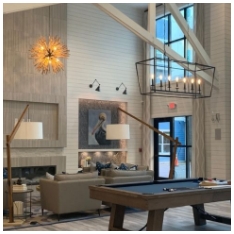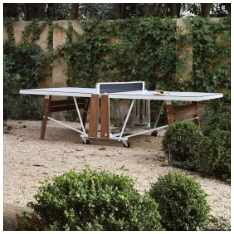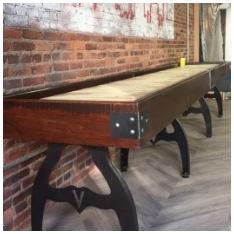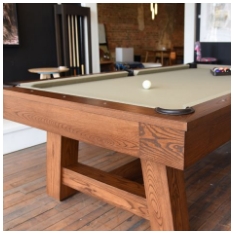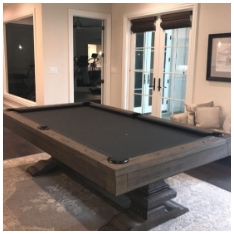When adding a pool table to your home, the goal is to find one that balances size, durability, and design. Whether you are working with limited space or building a full recreational room, choosing the right pool table can significantly improve your playing experience and match your lifestyle needs. This guide outlines compact and full-size pool tables suited for home use, helping you make an informed decision.
Why Choose a Pool Table for Home Use?
Having a pool table at home provides both entertainment and a way to develop cue skills in a comfortable setting. A home setup removes the limitations of public game rooms and allows more freedom for practice, family activities, or casual games with friends.
Moreover, pool tables serve as multifunctional pieces. Some compact models convert into dining or work surfaces, making them ideal for smaller apartments or multipurpose spaces.
Factors to Consider Before Buying a Pool Table
Choosing the best pool tables for home use requires more than just liking the design. Consider the following factors before purchasing:
1. Size and Available Space
Pool tables come in various sizes, including 6-foot (compact), 7-foot (bar-size), 8-foot (standard), and 9-foot (tournament). Measure your room carefully and factor in the cue length to ensure adequate playing space.
2. Frame and Material Quality
A strong frame prevents warping and ensures the table stays level over time. Solid wood and MDF (medium-density fiberboard) are common materials. Slate surfaces offer the best play quality but increase the cost and weight.
3. Leveling Mechanism
Home floors are rarely perfectly flat. A good pool table should have adjustable leg levelers to ensure accurate gameplay regardless of floor inconsistencies.
4. Usage Frequency
If you plan to play regularly, it’s worth investing in a more durable table. Occasional players may opt for a compact or foldable table that’s easier to store when not in use.
5. Aesthetic and Room Design
Your table should match your home’s decor, especially if it's placed in a shared living area. Compact models with modern finishes blend well with contemporary interiors.

Pool Table Maintenance Tips
Owning a pool table involves routine care to maintain surface quality and prolong its life. Below are simple practices to follow:
1. Clean the Felt Regularly
Use a soft-bristle brush or vacuum with an upholstery attachment to remove chalk, dust, and debris from the felt. Avoid excessive pressure to preserve the surface.
2. Protect from Direct Sunlight
Sunlight can fade the felt and damage wooden parts. Place your pool table in a shaded room or use a protective cover when not in use.
3. Level the Table Periodically
Heavy use or floor shifts may affect the table’s level. Use a spirit level and adjust leg height to maintain balance.
4. Store Accessories Properly
Keep cues, balls, and racks stored in a dedicated area to prevent damage. Wall-mounted cue racks help reduce clutter and preserve cue shape.

Accessories to Enhance Your Playing Experience
A well-equipped setup improves both convenience and play quality. Consider the following accessories:
- Cue rack: Keeps cues organized and prevents warping
- Table cover: Protects from dust and light
- Wall protector: Guards walls from cue damage
- Bridge stick: Helps with difficult shots
- Cue tip repair kit: Maintains accuracy and feel
These accessories are useful for both compact and full-size tables and can be easily integrated into your setup.
Final Thoughts
Choosing from the best pool tables for home use – compact & full-size options – depends on your specific space, budget, and gameplay expectations. Compact models suit casual players and smaller living spaces, while full-size tables are better suited for serious enthusiasts with dedicated game rooms. Evaluate your needs carefully, and consider long-term use and available room before investing in a pool table.
Whether you're upgrading your home entertainment options or refining your billiards skills, the right table can make a noticeable difference in your playing experience.

